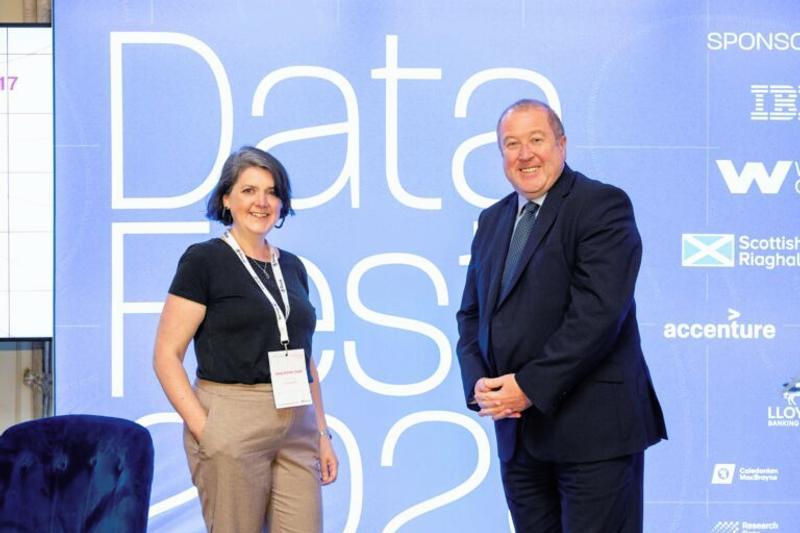Nations and Regions Programme activities
techUK champions the tech sector throughout the UK. We work with local authorities, devolved government, and local and national policy makers to advocate for the tech sector in strengthening economic growth and resilience across the nations and regions. Visit the programme page here
techUK Devolved Government Manifesto for pursuing economic growth, a thriving tech sector and digital at the heart of public services
This manifesto sets out techUK’s priorities for devolved governments, focusing on driving economic growth, supporting a thriving tech sector and placing digital at the heart of public services. It outlines practical policy actions and opportunities for collaboration to help technology deliver better outcomes for people, places and the economy.
Local Digital Index 2025 - Read now
techUK is delighted to publish the 2025 edition of our Local Digital Index. This is the fifth edition of the Index and provides updated data, new insights and a more user-friendly set of maps to help all those using the tool to inform their work and support decision making.
techUK’s Scottish Parliamentary Reception, 24 February
This reception will provide attendees, including MSPS, with an insight into techUK’s upcoming work, and the opportunity to discuss how the tech sector can grow in Scotland. Places are limited and we are currently operating a waiting list.
Upcoming events
Latest news and insights
Barnsley named UK’s first ‘Tech Town’
Government 10 Year Health Plan impact statement
Learn more and get involved
Nations and Regions updates
Sign-up to get the latest updates and opportunities from our Nations and Regions programme.
Here are the five reasons to join the Nations and Regions programme
Join techUK groups
techUK members can get involved in our work by joining our groups, and stay up to date with the latest meetings and opportunities in the programme.
Become a techUK member
Our members develop strong networks, build meaningful partnerships and grow their businesses as we all work together to create a thriving environment where industry, government and stakeholders come together to realise the positive outcomes tech can deliver.
Meet the team

Matt Robinson
Head of Nations and Regions, techUK

Matt Robinson
Head of Nations and Regions, techUK
Matt is techUK’s Head of Nations and Regions.
Matt is leading techUK’s work with members and stakeholders across the UK to increase the Local Digital Capital across the UK’s nation and regions, build communities and to ensure that digital technology plays a key part the post-COVID-19 levelling-up recovery.
Prior to joining techUK, Matt worked for several national education charities and membership bodies to develop their regional partnerships with schools, academy trusts, local authorities, and other stakeholders. He’s also worked with local authority leaders and other stakeholders to engage communities, work with elected members and improve public services.
He holds a BA in Politics from the University of York and an MA in International Relations from the University of Leeds. Away from work he’s a keen football fan and golfer.
If you’d like to find out more about our work in the nations and regions please get in touch with Matt:
- Email:
- [email protected]
- Website:
- techuk.org,,techuk.org,

Stephanie Barr
Programme Manager, SME Engagement and Nations & Regions, techUK

Stephanie Barr
Programme Manager, SME Engagement and Nations & Regions, techUK
Stephanie is the Programme Manager for SME Engagement and Nations & Regions at techUK.
Working across the two programmes, Stephanie develops activities to support the growth and development of tech SMEs and engages with members and stakeholders more broadly to help strengthen regional tech economies.
Prior to joining techUK, Stephanie worked for a political events company and as a Senior Caseworker for an MP. She holds an MA (HONS) in Politics from the University of Glasgow.
Outside of work, Stephanie enjoys travelling, climbing and playing squash.
- Email:
- [email protected]

Luke Newcombe
Programme Manager – Local Public Services and Nations and Regions, techUK

Luke Newcombe
Programme Manager – Local Public Services and Nations and Regions, techUK
Luke joined techUK in September 2025 as a Programme Manager for Local Public Services and Nations and Regions.
Luke works closely with members and stakeholders across industry and government at local, regional and national levels to support collaboration, drive innovation and strengthen tech-enabled public services. His work supports the development of strong local and regional tech economies by helping organisations to engage with public sector challenges, explore emerging technologies and build impactful partnerships.
Prior to joining techUK, Luke worked at Enterprise Ireland, the Irish government’s export development agency. He began by advising SMEs on export strategy to the UK and later focused on connecting Irish businesses with multinational organisations to foster strategic partnerships, drive international growth and support economic development.
Luke holds an MSc in Political Economy from the University of Amsterdam and a BA in European Studies from Trinity College Dublin.
- Email:
- [email protected]









